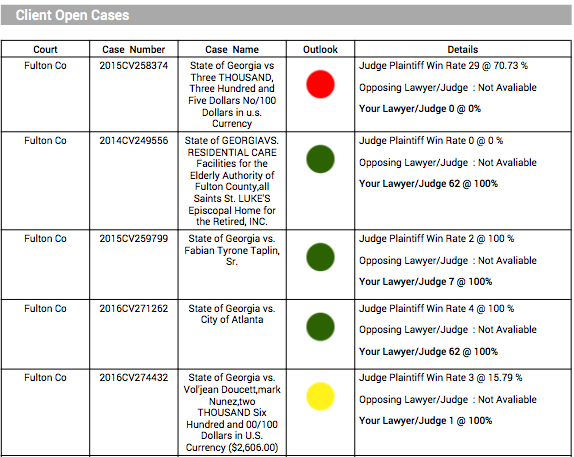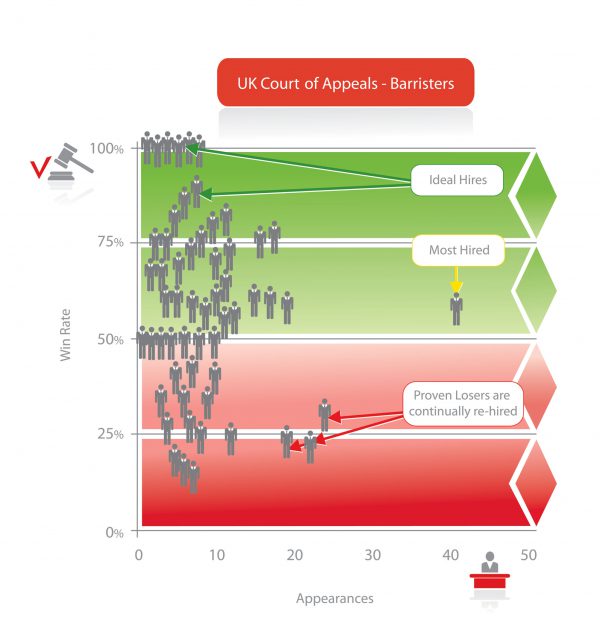Commercial Litigation and Artificial Intelligence
Commercial Litigation and Artificial Intelligence

Commercial litigation is an expensive, deeply unpredictable, resource intensive and risky business, so much so that a significant number of companies and individuals shelve the idea of pursuing a claim before even investigating the options.
Sometimes, however, a claimant will have no choice but to get involved in litigation because it may be in a position where it cannot afford not to pursue a claim – indeed, its very existence may depend on securing the damages due to it.
But then it gets tricky. Once a decision has been made to litigate, the costs of litigation- law firm, barristers, experts, court fees and insurance to pay the other side’s costs if you lose- are substantial. Depending on the complexity of the case and the volume of evidence involved, you can expect to pay anything upwards of £100,000 (and a great deal more if the matter proceeds to trial) simply for the services of a solicitor to pursue a claim of £500,000.
Of course, there are lawyers who are prepared to undertake this work on a Conditional Fee Agreement- a so-called ‘No Win No Fee’ deal- where the lawyer agrees to work for ‘free’ until the claim is successful whereupon he will extract his fees plus an uplift from the resultant damages recovered. If the claim fails, the client will have no fee liability to the lawyer and the risk of having to pay the other side’s costs will be covered by virtue of a specialist “After The Event” insurance policy. The problem is that although this model is prevalent in the consumer end of the legal market (slips, trips, road accidents etc.) where cases are relatively straightforward and usually settle long before trial, it is less attractive to law firms in commercial cases due to the significant costs risk they are being asked to bear and the potential for things to go wrong. Even if a claimant is fortunate enough to find a firm willing to take a ‘punt’ on this basis, the likelihood is that the work will probably be undertaken by a very junior member of staff, whenever their fee paying work allows. You get what you pay for. Additionally, there will be other costs such as court fees and experts’ fees which will need to be funded.
There is a solution to all of this, however. Third party litigation finance allows you to bring good quality commercial claims at little or even no financial risk, in return for giving up a pre-agreed percentage of the resultant damages or a percentage/multiple of the money loaned. It can be used by claimants who simply cannot fund the costs of litigation themselves or by claimants who do have the ability to pay but prefer to deploy their cash into other more lucrative projects.
Litigation finance- to use a generic term- is a young but evolving market. Whereas 10 years ago there were just a handful of providers of litigation finance, there are now many more and this number is increasing. Quoted funds; private funds; crowdfunds; family offices; high net worth individuals- these are just some of the players on the pitch. Expect that number to increase as the market matures.
With the maturation of the market comes an increasing range of funding options and structures which quite frankly would test the technical proficiency of any corporate financier or accountant. Whilst there are some similarities in the way funders price their finance, there are also many differences. For example, some funders price on the basis of a multiple of funds that have been committed- this may or may not be coupled with an interest charge- and that multiple will then increase the longer the matter takes to reach a conclusion. Other funders will charge on the basis of a percentage of the proceeds of any win- which may or may not be after the costs of running the case.
Then you have to take into account a funder’s “sweet spot” in terms of type of case. Most funders will look at commercial cases and professional negligence cases but not many will consider clinical negligence cases. Some are very UK focussed, whereas others prefer international matters.
As regards quantum, again this varies enormously depending on which funder you are talking to. Some will fund amounts in the tens of thousands of pounds, whilst others will not look at requirements of less than a few million.
As indicated earlier, there are also differing attitudes to risk, some funders making it a pre-requisite for the law firm (and possibly Counsel as well) to defer a significant portion of their fees and make these contingent on success, whilst other funders prefer the legal advisors to be fully paid throughout the case.
Remember also that a funder will want a diversified portfolio, which means that although you may have a very strong case which ticks all of a funder’s boxes, if s/he is “overweight” in a certain type of claim or industry sector, there may be unwillingness to add to that exposure.
The issue is compounded by the fact that there are so many variables in litigation that predicting what the claimant actually ends up with is an art form in itself. Of course, any tools that can be used to improve the chances of the litigation succeeding are invaluable, so the breakthrough analytical metrics being provided by Premonition are transformational and disruptive in this ever-changing landscape. Litigation funds are waking up to this, as it is clearly fundamental that a credible and competent legal team is used for funded disputes and Premonition gives the funder information that enables the right advisors to be chosen to improve chances of success. All of this means that the litigation finance landscape is complex and difficult to navigate, which is where a broker/consultant such as 4 Rivers can add significant value. Brokers spend time regularly with funders, discussing specific cases, monitoring criteria, debating legal merits and much more. This means that a broker is in an excellent position to advise a claimant objectively as to which are the best funds to talk to on specific cases. A broker can also establish competitive tension between funders to deliver the optimum result for the claimant; most funders do have some flexibility in their structures and a broker will know how best to tap into this flexibility.
Ultimately this is a very complex game and no lay client can be expected to know its rules. Seek advice early in order to give yourself the very best chance of reaching a successful- and deserved- result.
Peter Petyt and David Vines are co-founders of 4 Rivers Services, a litigation finance consultancy and brokerage. 4 Rivers has negotiated preferential arrangements with a number of third-party funders in order to cover a wide range of disputes of different types and sizes, including commercial, insolvency, clinical negligence and matrimonial cases. It also has long established relationships with law firms, barristers, valuation specialists, forensic accountants, investigations companies, asset tracers, costs companies and other specialists in order to assemble the right team to enable third party funding to be secured.
Authors: Peter Petyt and David Vines
NB: Since this article was published, we have announced a strategic alliance with our friends at 4 Rivers with collaboration on originating and funding cases for corporations which are litigating regularly in the US and UK.
Using our sophisticated software and legal analytics, Premonition can identify serial litigants according to a number of criteria, including type and size of the case, and geography. 4 Rivers has access to specialist funding sources which are suitable for financing either single cases or bundles of cases. For the latter, portfolio arrangements can be negotiated and cash can be drawn down by the corporate to fund other initiatives such as acquisitions, investment in IT and expansion into new markets.
It’s a fantastic fit and we’re thrilled to be working together.





